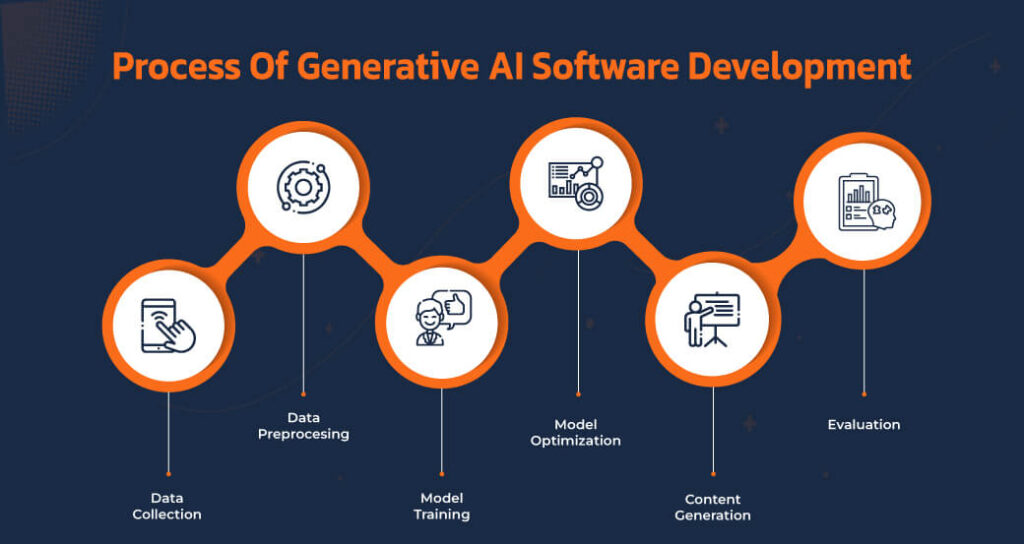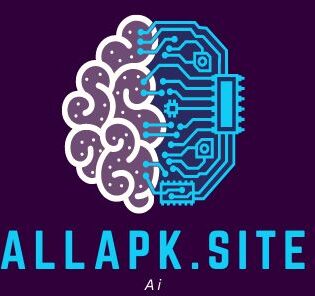AI in Software DevelopmentMan-made brainpower (simulated intelligence) is quickly changing ventures across the globe, and programming advancement is no exception. As we move further into the computerized age, man-made intelligence’s joining into programming improvement processes isn’t simply a pattern but a need. This article investigates the significant effect man-made intelligence is having on programming advancement, from computerizing ordinary errands to upgrading navigation and development.
- Artificial intelligence Driven Code Age
Perhaps the main way simulated intelligence is upsetting programming improvement is through simulated intelligence-driven code age. Apparatuses like OpenAI’s Codex and GitHub’s Copilot are great representations of how man-made intelligence can help designers record as hard copy code quicker and all the more productively. These apparatuses can produce whole blocks of code given straightforward prompts, diminishing the time engineers spend on redundant coding assignments. Via computerizing these angles, engineers can zero in additional on imaginative critical thinking and development.
- Improved Programming Testing
Testing is a basic stage in programming improvement, and artificial intelligence is playing a vital part in working on this cycle. Customary testing techniques are in many cases tedious and inclined to human blunder. Simulated intelligence-driven testing apparatuses can robotize the testing system, guaranteeing that the product is completely checked for bugs and weaknesses. Artificial intelligence calculations can anticipate expected issues before they emerge, considering proactive critical thinking. This rates up the improvement interaction as well as guarantees a better final result.
- Prescient Investigation for Better Direction
Man-made intelligence’s capacity to examine tremendous information measures rapidly and precisely is a distinct advantage for programming improvement. Prescient investigation controlled by artificial intelligence can assist designers with settling on informed choices all through the improvement lifecycle. For example, man-made intelligence can investigate past task information to anticipate likely difficulties, gauge project courses of events, and dispense assets all the more. This degree of knowledge permits groups to go with information-driven choices, decreasing the probability of undertaking postponements and cost invades.
- Normal Language Handling (NLP) for Improved Correspondence
Normal Language Handling (NLP) is another region where simulated intelligence is having a tremendous effect. In programming improvement, clear correspondence between designers, partners, and clients is fundamental. Artificial intelligence-controlled NLP apparatuses can overcome any issues by interpreting specialized language in layman’s terms as well as the other way around. This further develops joint effort among groups and guarantees that everybody engaged with a task is in total agreement. Furthermore, simulated intelligence-driven chatbots and menial helpers can deal with routine requests, opening up engineers to zero in on additional perplexing errands.
- Simulated intelligence-fueled DevOps
DevOps, the act of coordinating programming advancement and IT tasks, is being improved by artificial intelligence. Simulated intelligence can mechanize numerous DevOps errands, like consistent incorporation and persistent organization (CI/Disc), framework of the executives, and observing. Via robotizing these cycles, simulated intelligence assists groups with sending programming quicker and with fewer blunders. Besides, computer-based intelligence can examine logs and execution information to distinguish bottlenecks and recommend improvements, prompting more productive and solid programming organizations.
- Customized Client Encounters
In the present cutthroat programming market, conveying customized client encounters is critical to progress. Artificial intelligence can investigate client conduct and inclinations to make programming that adjusts to individual clients. For instance, man-made intelligence-driven proposal motors can recommend elements or content custom-fitted to a client’s requirements, upgrading client fulfillment and commitment. This degree of personalization is challenging to accomplish with conventional improvement techniques yet becomes achievable with artificial intelligence.
- Moral Contemplations in Computer-based Intelligence Fueled Programming Improvement
While computer based intelligence carries various advantages to programming improvement, it additionally raises significant moral contemplations. Engineers should know about predispositions in computer based intelligence calculations and guarantee that their product is planned and tried considering reasonableness and inclusivity. Moreover, the utilization of simulated intelligence in dynamic cycles ought to be straightforward, with clear clarifications accommodated artificial intelligence-driven results. As man-made intelligence keeps on advancing, addressing these moral worries will be significant to guaranteeing that computer-based intelligence-driven programming improvement benefits everybody.
End
Simulated intelligence is irrefutably changing the scene of programming advancement. From robotizing code age to improving testing, independent direction, and client encounters, man-made intelligence is empowering engineers to work all the more productively and actually. Be that as it may, similarly as with any strong innovation, moving toward computer-based intelligence with a careful consciousness of its moral implications is fundamental. By tackling the force of man-made intelligence dependably, programming engineers can prepare for a future where development and inventiveness thrive.
FAQs
- What is artificial intelligence in programming advancement?
Artificial intelligence in programming improvement alludes to the utilization of man-made reasoning advancements to upgrade, computerize, and enhance different parts of the product improvement lifecycle. This incorporates errands like code age, testing, investigating, project the executives, and client experience personalization. Man-made intelligence apparatuses and calculations can break down enormous datasets, gain from examples, and simply decide on expectations that assist designers with working all the more productively.

- How does simulated intelligence further develop code age?
Simulated intelligence further develops code age via mechanizing redundant coding undertakings and giving astute code ideas. Instruments like GitHub Copilot and OpenAI Codex use AI models prepared on huge measures of code to foresee and create code scraps in light of a designer’s feedback. This speeds up the coding system, decreases mistakes, and permits designers to zero in on additional perplexing and imaginative parts of programming improvement.
- Could computer based intelligence at any point supplant programming designers?
No, simulated intelligence isn’t supposed to supplant programming designers. All things being equal, computer based intelligence fills in as an amazing asset that supplements crafted by designers via robotizing ordinary errands, upgrading direction, and giving significant experiences. While computer-based intelligence can deal with specific monotonous and unsurprising assignments, human engineers are as yet fundamental for imaginative critical thinking, figuring out complex prerequisites, and settling on moral choices in programming plans.
- Which job does computer based intelligence play in programming testing?
Computer-based intelligence assumes a huge part in programming testing via robotizing and working on the precision of testing processes. Man-made intelligence-driven testing apparatuses can naturally create experiments, distinguish possible bugs, and foresee issues before they emerge. These devices can likewise gain from past test results to ceaselessly further develop testing precision and effectiveness, at last prompting more solid and without bug programming.
- How does man-made intelligence upgrade DevOps?
Man-made intelligence upgrades DevOps via robotizing different cycles like nonstop incorporation and constant arrangement (CI/Album), framework the board, and observing. Artificial intelligence devices can break down execution information, recognize bottlenecks, and recommend enhancements to further develop programming organization and tasks. This prompts quicker, more dependable deliveries, and a more proficient DevOps work process.
- What are the advantages of computer based intelligence in programming improvement?
The advantages of simulated intelligence in programming advancement include:
Quicker code age: simulated intelligence apparatuses assist engineers with composing code all the more rapidly and proficiently.
Further developed testing and troubleshooting: artificial intelligence-driven instruments improve the precision and speed of testing processes.
Better independent direction: artificial intelligence dissects information to give bits of knowledge and expectations that illuminate project choices.
Improved client encounters: man-made intelligence customizes programming given client conduct and inclinations.
Expanded efficiency: Via mechanizing routine errands, simulated intelligence permits designers to zero in on additional complicated difficulties.
- What are the moral worries of involving computer based intelligence in programming advancement?
Moral worries in simulated intelligence-fueled programming advancement include:
Predisposition in artificial intelligence calculations: simulated intelligence models can coincidentally sustain inclinations present in the information they are prepared on.
Straightforwardness: It is vital to give clear clarifications to computer-based intelligence-driven choices and results.
Security: simulated intelligence frameworks should be planned considering information protection, guaranteeing that client information is taken care of mindfully.
Responsibility: Engineers should guarantee that computer-based intelligence-driven choices are responsible and line up with moral guidelines.
- Could man-made intelligence at any point help in projecting the executives inside programming improvement?
Indeed, computer based intelligence can fundamentally support the project of the executives inside programming advancement. Artificial intelligence apparatuses can dissect project information to anticipate expected difficulties, gauge timetables, distribute assets, and track progress. By giving information-driven experiences, man-made intelligence assists project chiefs with settling on additional educated choices and overseeing projects all the more productively.
- What is the fate of man-made intelligence in programming advancement?
The fate of computer-based intelligence in programming improvement is promising, with simulated intelligence expected to assume a much more necessary part in the advancement cycle. As computer-based intelligence advances keep on propelling, they will probably turn out to be more adroit at dealing with complex errands, further developing effectiveness, and driving development. Notwithstanding, the proceed center around moral contemplations and the cooperation among man-made intelligence and human engineers will be significant to understanding man-made intelligence’s maximum capacity in this field.
- How might I begin coordinating computer based intelligence into my product advancement process?
To begin coordinating simulated intelligence into your product improvement process:
Distinguish redundant errands: Search for regions where simulated intelligence can mechanize routine undertakings, like code age or testing.
Investigate simulated intelligence instruments: Exploration and trial with computer-based intelligence-controlled devices like GitHub Copilot, Codex, or artificial intelligence-based testing structures.
Put resources into preparing: Guarantee your group is prepared in computer based intelligence and AI to use these advances.
Think about moral ramifications: Carry out man-made intelligence with an emphasis on straightforwardness, reasonableness, and responsibility to address moral worries.

